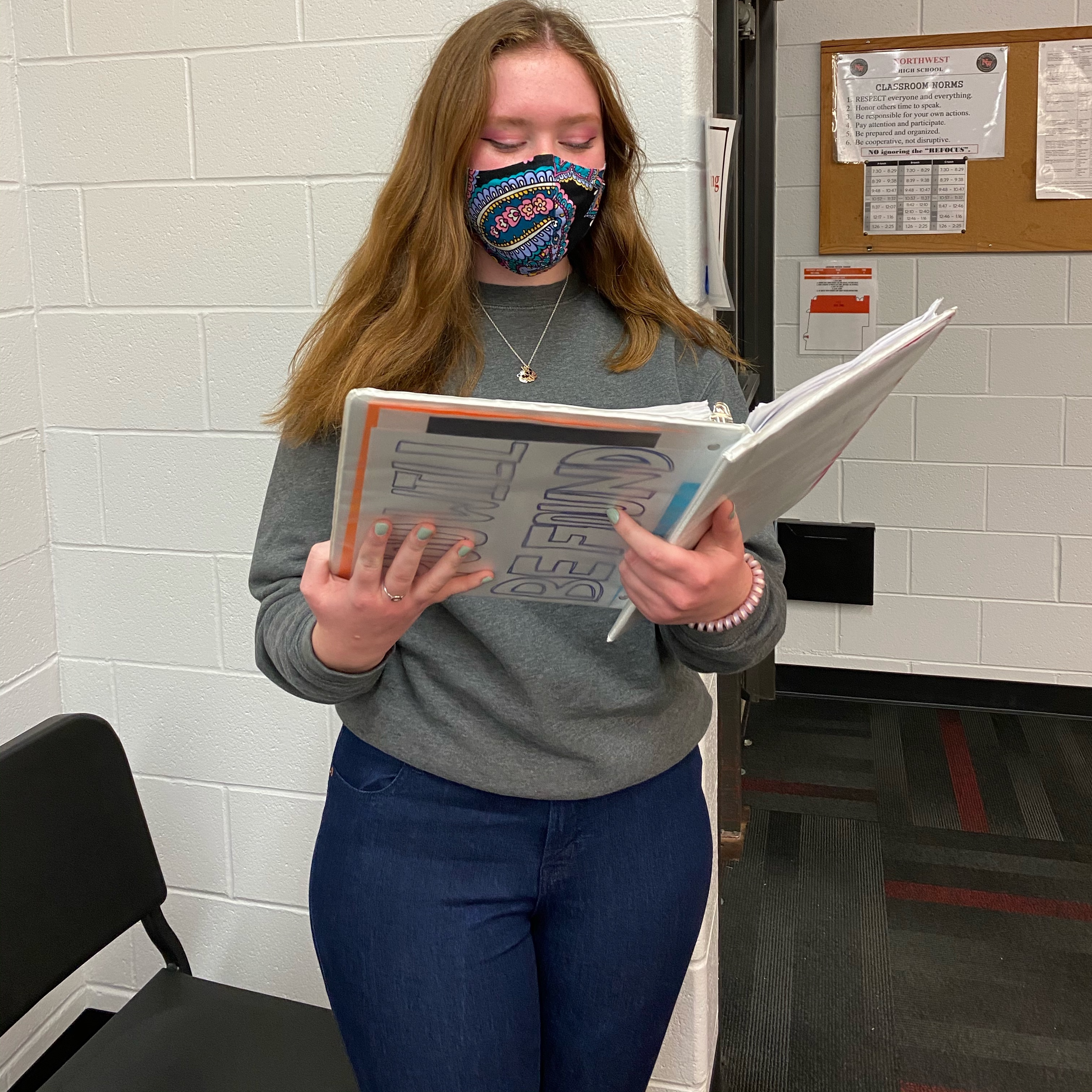
Courtesy of Shealyn Paulis
Senior Erin Camburn prepares for her first virtual choir concert by rehearsing the music on her own.In a study about COVID-19 spreading through aerosol released by singers, conducted by The University of Colorado, a person with mild symptoms attended a 2.5-hour choir rehearsal and within two weeks 50 people from the rehearsal were diagnosed with COVID-19. Research found that by decreasing the rehearsal time from 2.5 hours to half an hour, the rate of infection would have decreased from 87% to 12%.
Northwest High School choir director Matthew Snell has based his class procedure off of this research. His students wear masks at all times, stand at least 6 feet apart, and do not move from their designated spot until they switch classrooms.
“We have 60-minute classes, so to avoid this issue we sing for 30 minutes in my classroom, then we walk to the cafetorium and finish the class period there, and this way we avoid aerosol spreading over 6 feet,” says Snell.
The high school’s band is also taking extra precautions, according to junior Aspen Tapley. Students who play wind instruments wear special masks with slits in them so they can play, and they practice marching outside while socially distancing.
“We also practice in arcs instead of circles or straight lines so we can be farther apart,” said Tapley. “We practice in much smaller groups than before, and really only practice as a whole class when we march together outside.”
Students are learning music at a slower rate, about one-third of what they used to learn, due to the dynamic of the ensembles changing. At Northwest, students have the option to switch from online learning to in-person or vice versa every four weeks.
Submitting their performances on video
This has not stopped Snell from making the best of the situation. Online students practice their music every day, and on Fridays they submit a video of themselves singing or explaining what they practiced throughout the week.
Students who choose to learn from home are strictly online with the exception of “virtual concert” recording days. They recorded their first concert on Oct. 22, and it was the first time the entire class performed together.
“We pretty much treated them as athletes when they came to school,” said Snell. “We took their temperatures, and that way they could sing and perform with the choir.”
Musicians rely on listening to peers to create one sound within their ensemble, which is not possible online. According to Holt High School and junior high choir director Seth Burk, his classes have used this time to focus on other aspects of singing.
A greater focus on singing as soloists
“Instead of doing a lesser version of traditional choir, we’re focusing on solo repertoire and being able to sing as soloists,” said Burk. “And in replacement of community engagements and performances, we have time to focus more on music theory and apply that to songwriting and composition.”
Online learning has also slowed students’ improvement. Haslett Middle School choir director Samara Valla says being remote makes it harder to provide feedback and help students on an individual level.
“Typically every minute of every class I’m giving feedback on what my students are doing and learning, and I’m missing that part tremendously,” said Valla. “The students are still working hard with me and singing along at home, but they’re all on mute.”
You can find more information about The University of Colorado’s “Transmission of SARS-CoV-2 by inhalation of respiratory aerosol” study.